Meet six people who are challenging the clichéd image of a researcher hunched over a Petri dish or crunching data until the wee hours.
You'll find these health-care leaders out in the community, making clinical visits and making a difference. And, yes, sometimes even hard at work in the lab. But wherever their work takes them, their efforts will help improve your quality of life in the next decade.
Aging Population
Sharon Anderson, '10 MSc Health Promotion
Current position: PhD student with Research on Aging, Policies and Practice in the Faculty of Agricultural, life & environmental sciences Field: Community living after stroke Why she's one to watch: she expands our understanding of personal relationships in rehabilitation and quality of life. She recently received a Queen Elizabeth II Graduate Scholarship.
*****
In 1997, Sharon Anderson and her husband, John, had a stroke.
The event itself occurred in John's brain, but it transformed them both as a couple. It also drastically rerouted Sharon's career path. She left her job as a dental hygienist and headed back to school, eager to expand on her own experience in a marriage affected by stroke. She earned two master's degrees - one at the University of Calgary and one at the U of A. Now she's working on a PhD, studying the experiences of other couples who have survived strokes, and how their relationships affected their recoveries.
When John suffered his stroke, at age 46, the prognosis was grim, recalls Sharon.
The neurologist told me to put him in a nursing home. I said that wasn't an option."
Instead, Sharon brought her husband home and hired private therapists. Within a month, John had improved enough to be accepted into a rehabilitation program. Today, he maintains his own website, stroke-survivors.org.
The couple's effort not only improved their quality of life, it spared the health-care system an estimated $73,000 per year for care in a nursing home, says Sharon.
"My husband is now 15 years out of stroke. If you look at the cost of keeping him in a nursing home for 15 years, that's a lot of money."
Anderson is delving into the experiences of couples in a similar situation. "What happens in that couple's relationship to help the stroke survivor get better, or to keep the couple together?" she wonders. Existing data already show stroke survivors in stable relationships recover better and require significantly less long-term care. Anderson's findings could maximize the benefits enjoyed by stroke patients in relationships, while finding ways to provide better community support for all.
Anderson is particularly excited to be working with Norah Keating, U of A professor of human ecology, who is helping her explore medical questions from a holistic perspective.
She also continues to look forward to her shared future with John. "When people refer to me as a caregiver, I say, no - I'm my husband's wife."
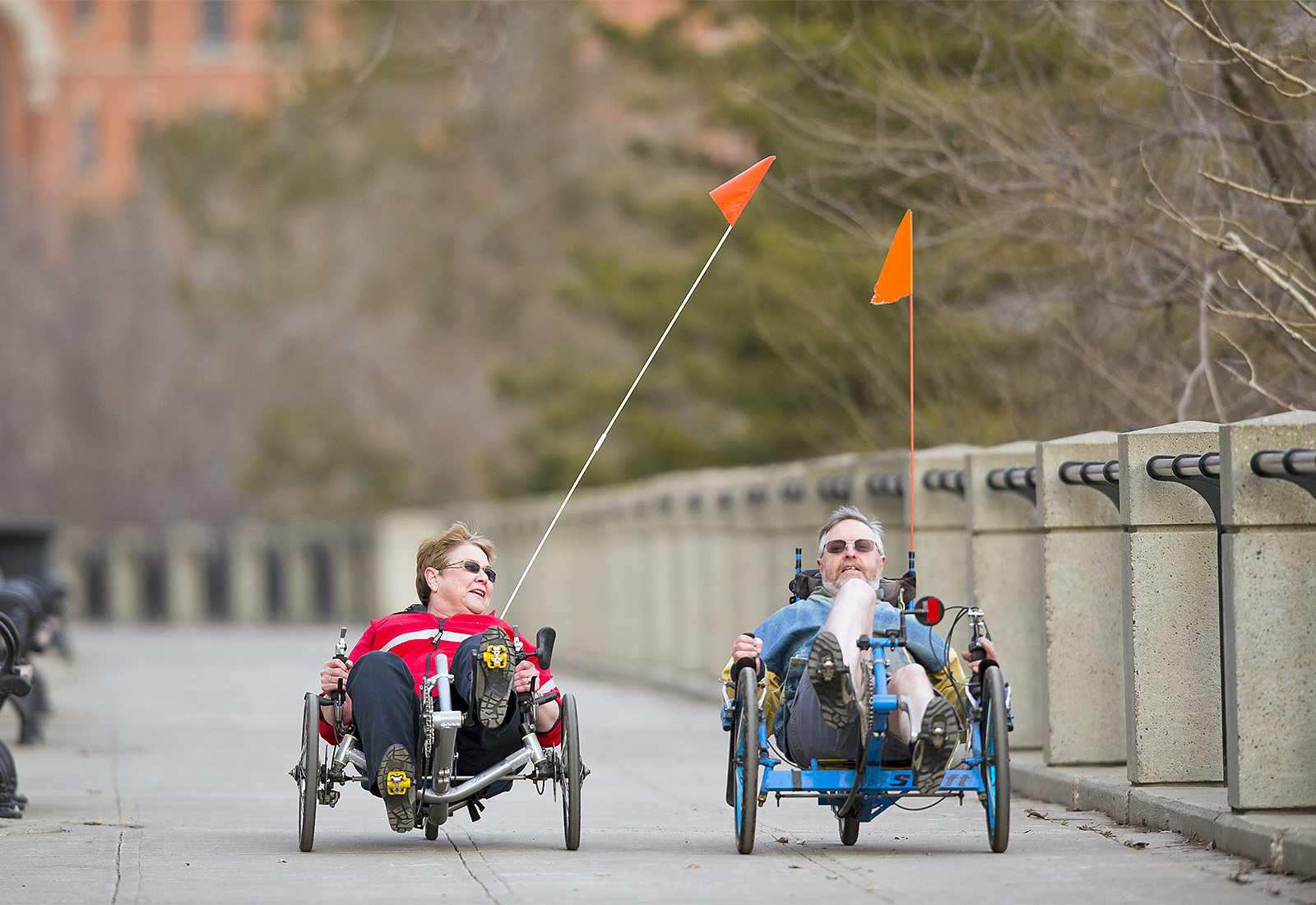
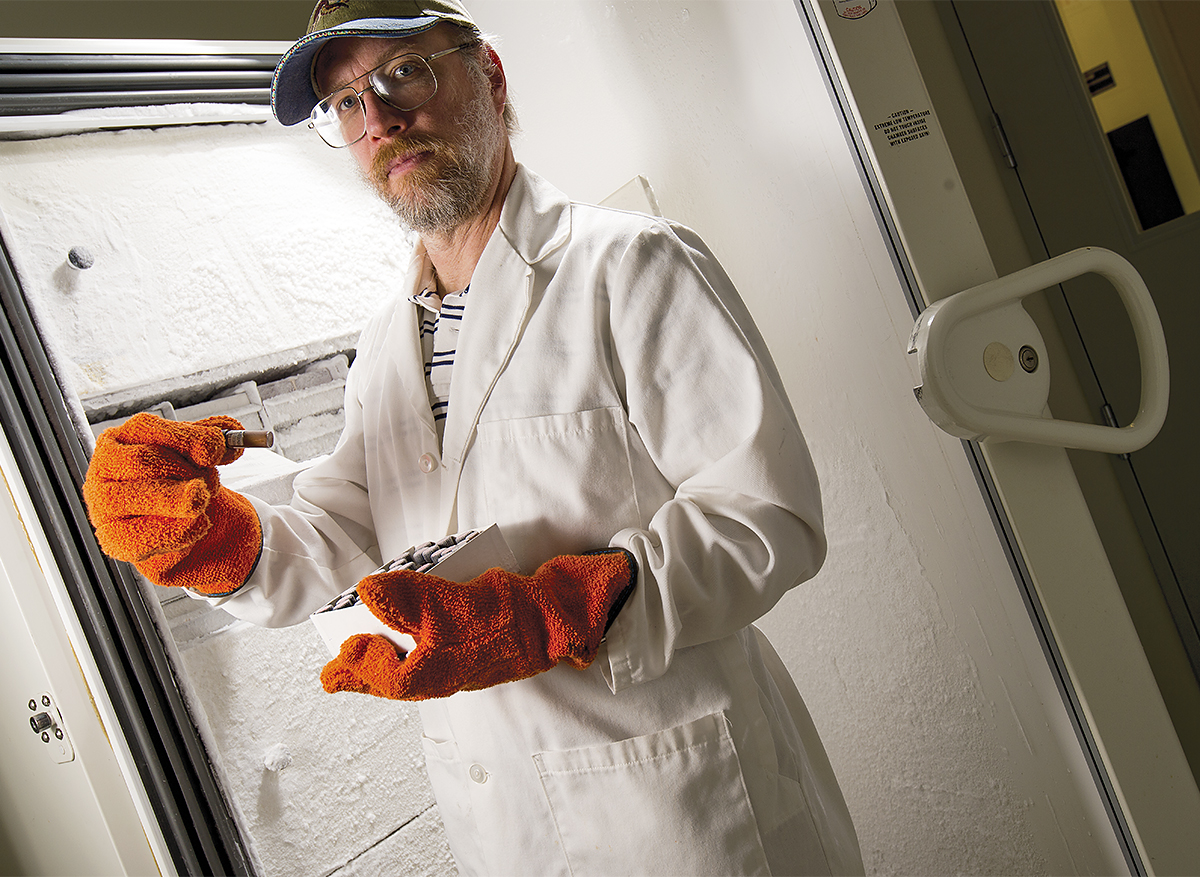
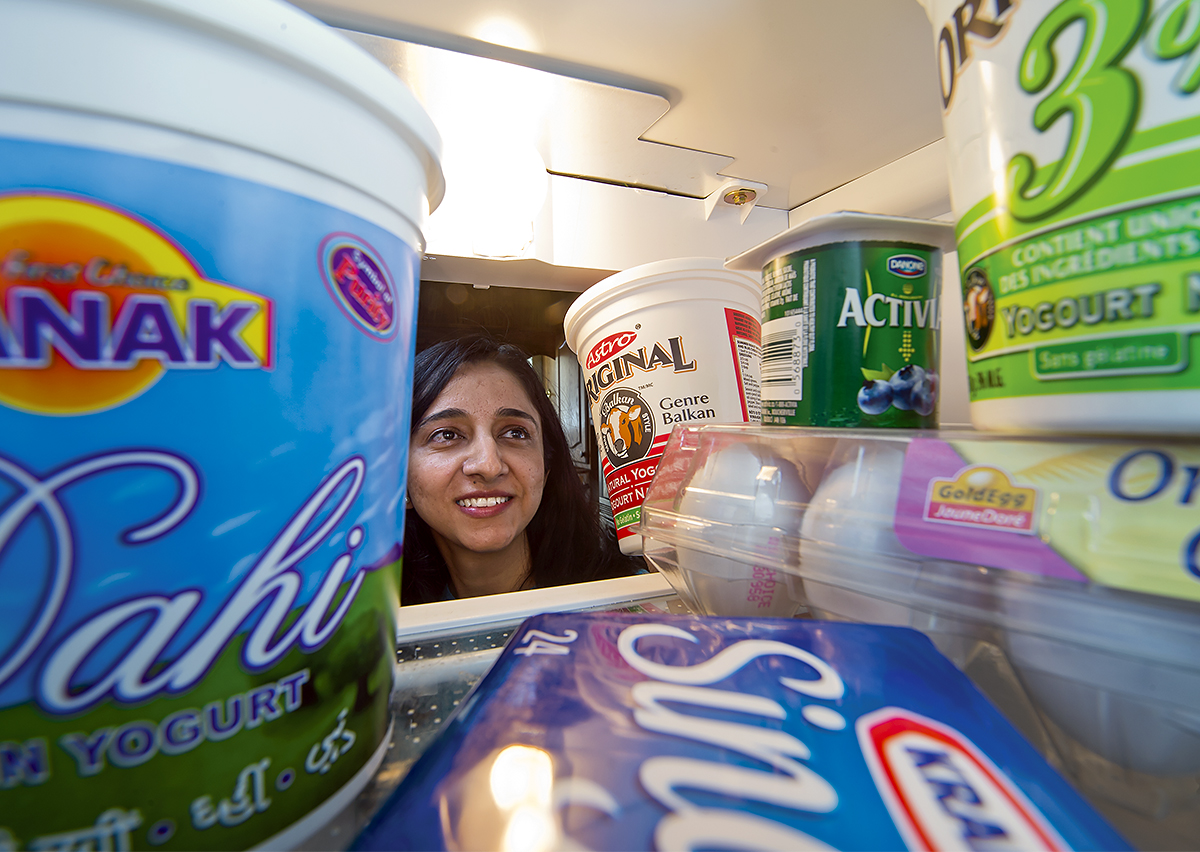
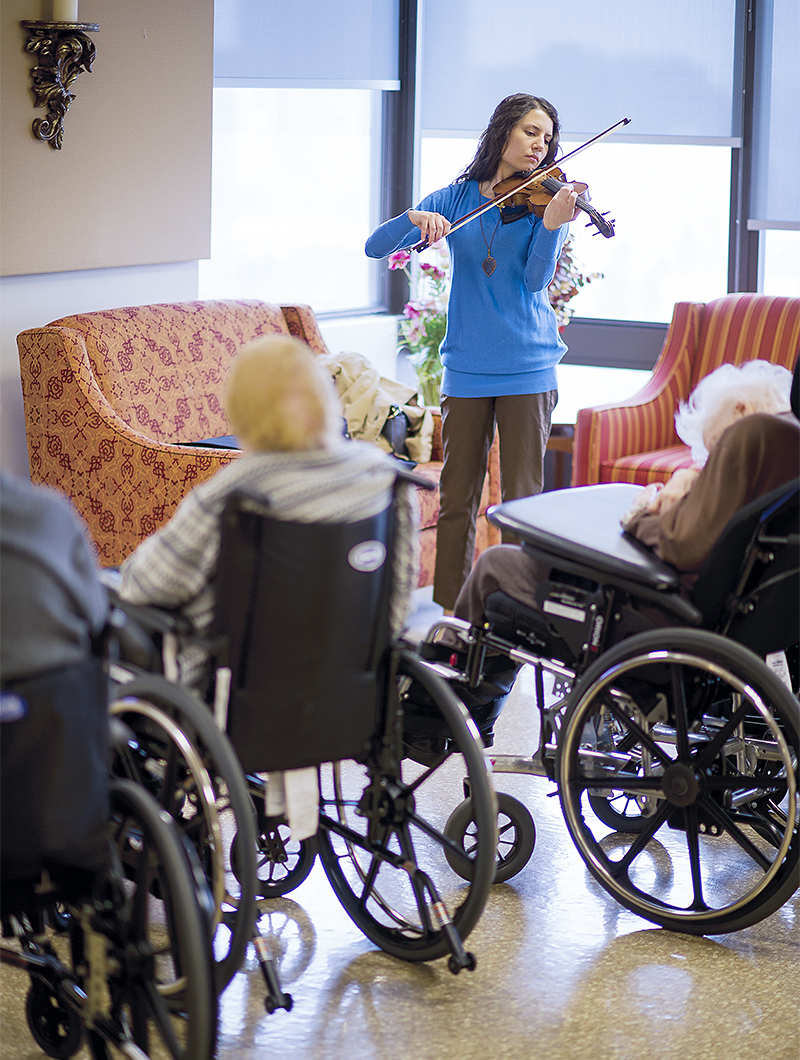

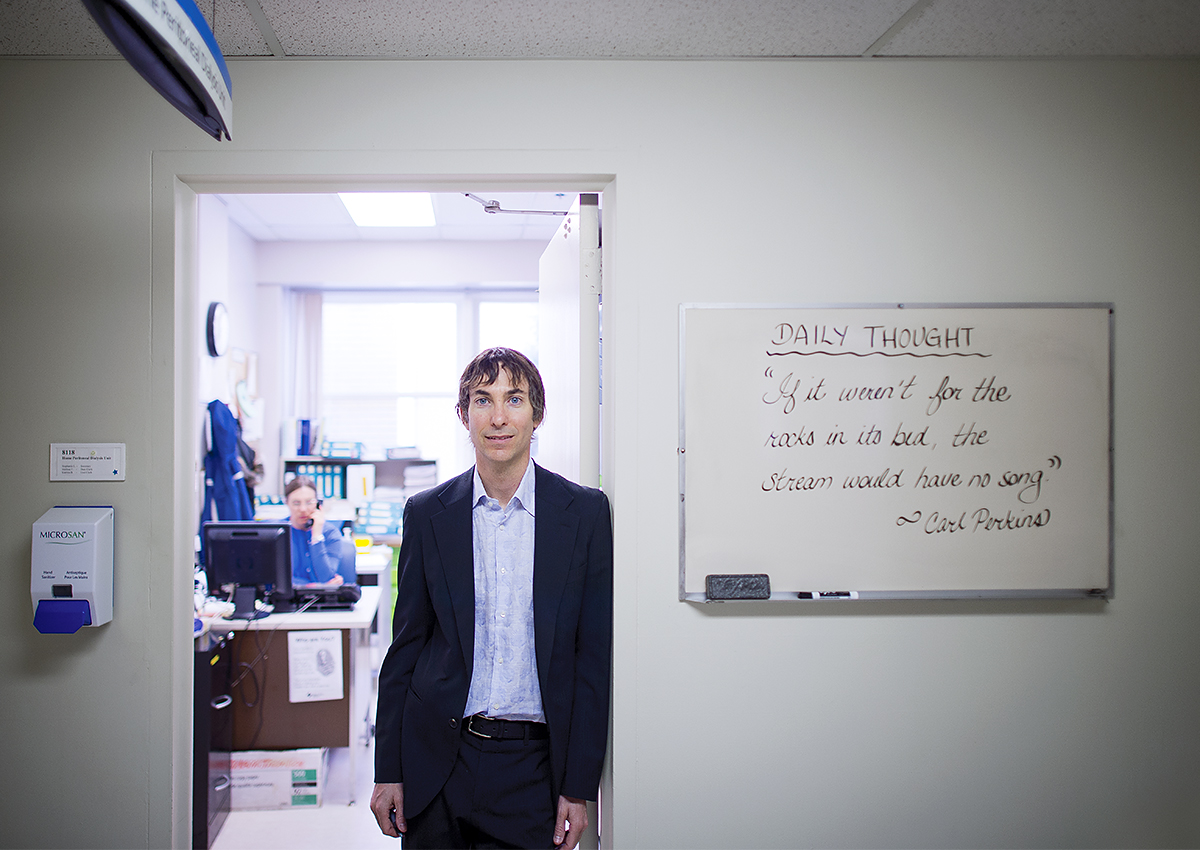
We at New Trail welcome your comments. Robust debate and criticism are encouraged, provided it is respectful. We reserve the right to reject comments, images or links that attack ethnicity, nationality, religion, gender or sexual orientation; that include offensive language, threats, spam; are fraudulent or defamatory; infringe on copyright or trademarks; and that just generally aren’t very nice. Discussion is monitored and violation of these guidelines will result in comments being disabled.